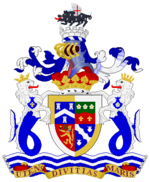Η έκφραση κυκλοφορεί σε διάφορες παραλλαγές. Οι παρακάτω είναι μερικές από τις πιο συνηθισμένες:
φάγαμε το γάιδαρο / βόδι κι έμεινε / απόμεινε η ουρά
φάγαμε το γάιδαρο / βόδι, στην ουρά θα κολλήσουμε / μείνουμε / σταθούμε;
Αν τις αναπτύξουμε για να τις βρίσκουν και τα ψαχτήρια:
φάγαμε το γάιδαρο κι έμεινε η ουρά
φάγαμε το γάιδαρο κι απόμεινε η ουρά
φάγαμε το βόδι κι έμεινε η ουρά
φάγαμε το βόδι κι απόμεινε η ουρά
φάγαμε το γάιδαρο, στην ουρά θα κολλήσουμε;
φάγαμε το γάιδαρο, στην ουρά θα μείνουμε;
φάγαμε το γάιδαρο, στην ουρά θα σταθούμε;
φάγαμε το βόδι, στην ουρά θα κολλήσουμε;
φάγαμε το βόδι, στην ουρά θα μείνουμε;
φάγαμε το βόδι, στην ουρά θα σταθούμε;
Να τι γράφει για τον ιδιωματισμό το λεξικό του Κάτου:
Μερικές μεταφραστικές σκέψεις:
We can't give up now that we're almost there.
Don't give up now; we've almost finished.
Never do things by halves.
We must go the extra mile.
Θέλω κι άλλες ιδέες.
φάγαμε το γάιδαρο / βόδι κι έμεινε / απόμεινε η ουρά
φάγαμε το γάιδαρο / βόδι, στην ουρά θα κολλήσουμε / μείνουμε / σταθούμε;
Αν τις αναπτύξουμε για να τις βρίσκουν και τα ψαχτήρια:
φάγαμε το γάιδαρο κι έμεινε η ουρά
φάγαμε το γάιδαρο κι απόμεινε η ουρά
φάγαμε το βόδι κι έμεινε η ουρά
φάγαμε το βόδι κι απόμεινε η ουρά
φάγαμε το γάιδαρο, στην ουρά θα κολλήσουμε;
φάγαμε το γάιδαρο, στην ουρά θα μείνουμε;
φάγαμε το γάιδαρο, στην ουρά θα σταθούμε;
φάγαμε το βόδι, στην ουρά θα κολλήσουμε;
φάγαμε το βόδι, στην ουρά θα μείνουμε;
φάγαμε το βόδι, στην ουρά θα σταθούμε;
Να τι γράφει για τον ιδιωματισμό το λεξικό του Κάτου:
- φάγαμε το γάιδαρο κι απόμεινε η ουρά (ενν. εδώ θα κολλήσουμε;) θέλουμε πολύ λίγο ακόμα για να τελειώσουμε εν σχέσει με το μέχρι τώρα έργο που έχουμε επιτελέσει: «τώρα θα τα παρατήσεις που φάγαμε το γάιδαρο κι απόμεινε η ουρά;». Λέγεται συνήθως για να ενθαρρύνουμε κάποιον που νιώθει εξαντλημένος ή αποθαρρημένος, τη στιγμή που πλησιάζει να τελειώσει το έργο που έχει αναλάβει. Ο πληθυντικός και όταν απευθυνόμαστε σε ένα μόνο άτομο. Συνών. φάγαμε το βόδι κι απόμεινε η ουρά.
http://georgakas.lit.auth.gr/dictio.../g-katou?chronoform=search_katos&event=submit
http://georgakas.lit.auth.gr/dictio.../g-katou?chronoform=search_katos&event=submit
Μερικές μεταφραστικές σκέψεις:
We can't give up now that we're almost there.
Don't give up now; we've almost finished.
Never do things by halves.
We must go the extra mile.
Θέλω κι άλλες ιδέες.
Last edited:





